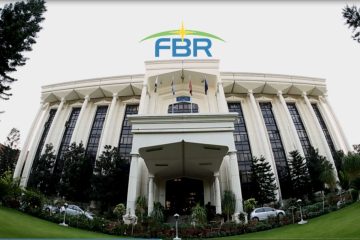The Federal Board of Revenue’s (FBR) renewed efforts to expand Pakistan’s tax net through the Tajir Dost Scheme (Trader’s Dost Scheme) raise questions about the effectiveness of its strategies. Despite the appointment of a prominent business figure, Muhammad Naeem Mir, as chief coordinator, the scheme follows a pattern of neglecting existing taxpayer grievances while prioritizing quantity over quality.
The tepid response to the scheme, with only 100 registrations by April 2024, highlights the underlying issues that have plagued the FBR’s attempts to broaden the tax base. The ambitious target of 3 million new registrations appears optimistic in the face of these challenges.
A Familiar Pattern: Ignoring Existing Taxpayers’ Concerns
The Tajir Dost Scheme seems more focused on optics than addressing the core issues that discourage informal businesses from entering the formal economy. This is evident in the FBR’s continued neglect of complaints from already registered taxpayers, who grapple with glitches in the FBR portal and a lack of support.
Prioritizing Quantity Over Sustainability
The FBR’s focus on a large number of registrations, without a robust plan to ensure continued compliance, raises concerns about the scheme’s long-term sustainability. Simply registering a vast number of traders won’t necessarily translate to a significant increase in tax revenue if the underlying issues, like complex procedures and a lack of trust in the system, are not addressed.
Bridging the Trust Gap: A Difficult Task
While Mir’s appointment is a step towards building bridges with the business community, it remains to be seen if this will be enough to overcome the deep-rooted mistrust. The success of the scheme hinges on effectively addressing existing grievances and creating a system that fosters a sense of fairness and transparency.
Lessons from the Past: Will the FBR Learn?
The FBR has a history of implementing schemes with lofty goals that fall short due to a lack of proper planning and execution. The lukewarm response to the Tajir Dost Scheme echoes the failures of previous initiatives. The coming months will be a critical test for the FBR to demonstrate if it has learned from past mistakes and is genuinely committed to building a more inclusive and efficient tax system.
A Model for the Future? Maybe, with Caution
Economic analysts remain cautious about the scheme’s potential to serve as a model. While its success could pave the way for broader reforms, a critical evaluation is necessary to identify its strengths and weaknesses before widespread implementation across other sectors of the informal economy.
A Scheme with Potential, But Questions Remain
The Tajir Dost Scheme has the potential to be a positive step towards expanding Pakistan’s tax net. However, its effectiveness hinges on addressing the root causes of mistrust and inefficiency within the FBR system. Prioritizing the grievances of existing taxpayers, ensuring a smooth registration process, and fostering a culture of transparency will be crucial for the scheme’s long-term success. Only then can the Tajir Dost Scheme move beyond a mere cosmetic attempt at tax reform and become a catalyst for a more equitable and compliant business environment in Pakistan.







